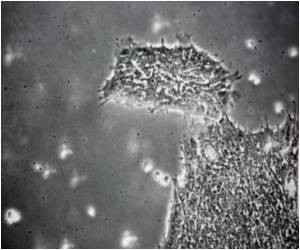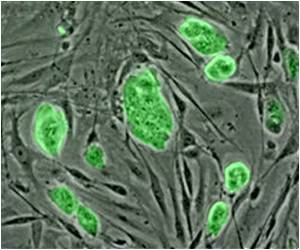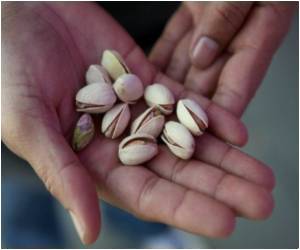
The NYSCF team guided these iPS cells to become bone-forming progenitors and seeded the cells onto a scaffold for three-dimensional bone formation. They then placed the constructs into a device called a bioreactor, which provides nutrients, removes waste, and stimulates maturation, mimicking a natural developmental environment.
"Bone is more than a hard mineral composite, it is an active organ that constantly remodels. Blood vessels shuttle important nutrients to healthy cells and remove waste; nerves provide connection to the brain; and, bone marrow cells form new blood and immune cells," said Marolt.
Previous studies have demonstrated the bone-forming potential from other cell sources, yet serious caveats for clinical translation remain. A patient's own bone marrow stem cells can form bone and cartilaginous tissue, not the underlying vasculature and nerve compartments; and, embryonic stem cell derived bone may prompt an immune rejection. The NYSCF scientists chose to work with iPS cells to overcome these limitations, comparing iPS sources with embryonic stem cells and bone marrow derived cells.
"No other research group has published work on creating fully-viable, functional, three-dimensional bone substitutes from human iPS cells. These results bring us closer to achieving our ultimate goal, to develop the most promising treatments for patients," said de Peppo.
Advertisement
After a comprehensive in vitro analysis of the generated bone, the NYSCF team assessed stability when transplanted in an animal model to address a major concern for iPS-based cell therapies. Undifferentiated iPS cells can form teratomas, a type of tumor. The iPS cell-derived bone substitutes were implanted under the skin of immunocompromised mice. After 12 weeks, the explanted constructs matured and showed no malignancies but complete maturation of bone tissue, while blood vessel cells began to integrate along the grafts. These results indicate the stability of the bone substitutes.
Advertisement
"Following from these findings, we will be able to create tailored bone grafts, on demand, for patients without any immune rejection issues," said Susan L. Solomon, CEO of NYSCF. "This is not a good approach, it is the best approach to repair devastating damage or defects."
Beyond potential therapeutic relevance, these adaptive bone substitutes may be implemented to model bone development and different pathologies. Analysis could enrich current understanding and identify potential drug targets.
Source-Eurekalert















